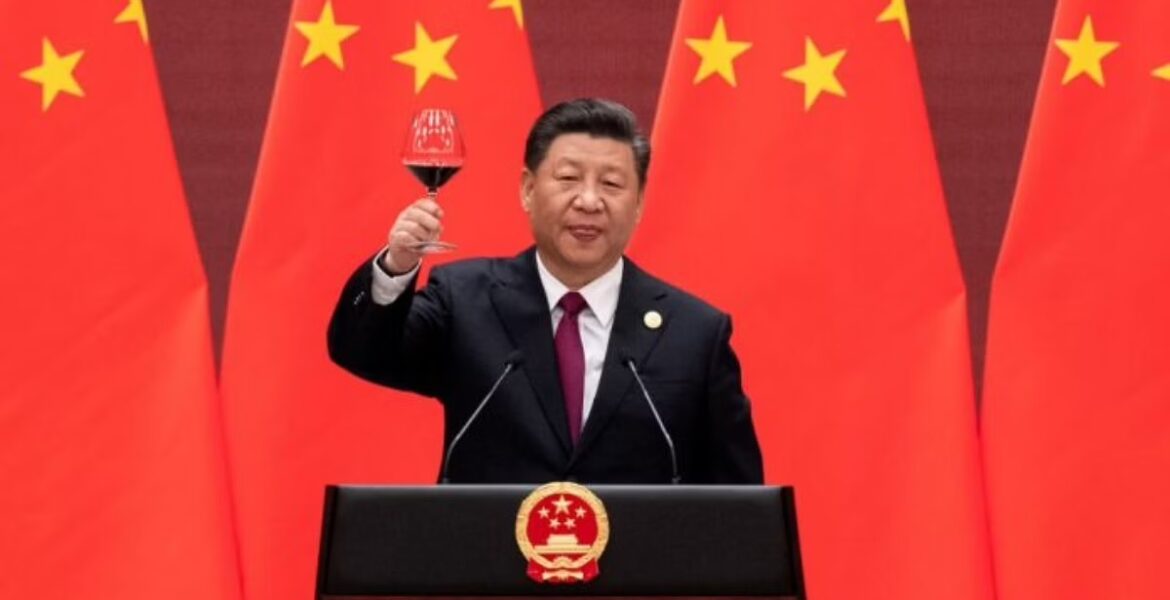Prior to accompanying Xi Jinping on his visit to Urumqi, Chen Wenqing, the security chief
of the Chinese Communist Party (CCP), made alarming remarks suggesting that Tibetan
citizens in Gansu should be subjected to a similar approach as that used against the Uyghurs.
The world has widely criticized the harsh threats made by Xi Jinping against Uyghurs and other Turkic Muslims in Xinjiang during his visit to Urumqi on August 26. In official photographs from that event, Chen Wenqing, the secretary of the influential CCP Central Political and Legal Affairs Commission, was seen standing closely beside Xi. In his capacity, Chen holds significant authority over public security matters in China.
What has received less attention, both nationally and internationally, is Chen's prior visit to Gansu province, specifically Hezuo City, before heading to Xinjiang. Gannan Tibetan Autonomous Prefecture, situated within Gansu, is home to more than 400,000 Tibetans,
constituting a majority of the population. This demographic reality underscores the fact that the historical Tibetan territory extends beyond what China designates as the Tibet Autonomous Region, now referred to as Xizang.
During his visit to Gannan Prefecture, Chen conveyed Beijing's expectations to local authorities. He urged them to establish a safe and stable social environment conducive
to promoting Chinese-style modernization. Additionally, he emphasized the importance
of upholding scientific culture while actively combating both separatist sentiments and
superstitions.
In anticipation of Xi's speeches in Urumqi, Chen indicated that Xinjiang should serve as a model for countering "separatism" and the use of religion to criticize the CCP. Similar to Xi's subsequent statements in Xinjiang, Chen praised the "Fengqiao experience." As previously explained by "Bitter Winter," the "Fengqiao movement" was initiated by Chairman Mao in Zhejiang province in 1963 as a precursor to the Cultural Revolution.
It involved the "four cleanups," during which four groups of "reactionary elements," including
"landlords," "wealthy peasants," "counterrevolutionaries," and "evildoers," were detained,
publicly humiliated, tortured, and sometimes killed. The category of "counterrevolutionaries" and "evildoers" encompassed individuals who still adhered to independent forms of religion.
The essence of Chen's remarks implies that the same persecution inflicted upon Muslim Uyghurs in Xinjiang should now be directed at Tibetan Buddhists in Gansu. However, it doesn't stop there. Chen also paid a visit to Gansu's Linxia Hui Autonomous Prefecture, where the population consists of over 50% minorities, including both Tibetans and Hui Muslims. In this context, Chen issued a warning against those who resist the "Sinicization of Islam." This resistance includes those who opposed the vandalization of Hui mosques in the Prefecture and nearby areas of Gansu under the pretext of "Sinicization."
On August 26, during his return from the BRICS meeting, Xi Jinping made a stop in Urumqi and convened a conference that gathered key figures, including the Xinjiang CCP
Committee, the government of the Xinjiang Uyghur Autonomous Region, and the Xinjiang Production and Construction Corps, which is a paramilitary organization overseeing the
region's economy and more.
In this significant meeting, Xi was accompanied by a notable roster of high-ranking CCP officials. Among them were Foreign Minister Wang Yi, Minister of Public Security Wang
Xiaohong, Shi Taifeng, who leads the United Front Work Department, Li Ganjie, the head
of the CCP Organization Department, Chen Wenqing, the secretary of the CCP Central
Political and Legal Affairs Commission, General He Weidong (Deputy Chair of the Central
Military Commission, with Xi Jinping as its Chair), He Lifeng (Director of the CCP Office
of the Central Financial and Economic Affairs Commission), and senior Politburo member
Cai Qi.
This event was openly reported by the official Xinhua News Agency and broadcast on
state television CCTV, indicating Xi Jinping's intention to communicate his message to
the Chinese populace.
In his address, Xi expressed his dissatisfaction with the current state of affairs in Xinjiang,
highlighting what he described as "persistent stability issues." He made it clear that he
believed a more forceful approach was required, stating the necessity to enhance the
mechanisms for identifying and mitigating significant risks and concealed threats. Xi
stressed the need to integrate counter-terrorism and anti-separatist efforts with the
advancement of the rule of law and robust stability maintenance work. He emphasized
the importance of addressing both the symptoms and underlying causes through
comprehensive measures and deepened governance.
Xi identified the persistence of what he termed "undesirable" religious practices as a key
problem. He underscored the imperative to further promote the Sinicization of Islam and
effectively curtail various illicit religious activities. One approach to achieving this goal
involves intensifying efforts to replace local languages, including Uyghur and others, with
Mandarin. Xi urged for a resolute promotion of education in the national standard spoken
and written language, with the aim of gradually enhancing the awareness and proficiency
of the population in using Mandarin.
Xi Jinping, during his visit to Urumqi, brought along the head of the United Front, responsible for international propaganda efforts. He emphasized the need to bolster positive publicity and convey the CCP's version of the Xinjiang story to international media. Furthermore, Xi stressed the importance of countering false narratives, negative opinions, and harmful discourse with targeted responses. Additionally, he called for an increased openness to tourism in Xinjiang, encouraging both domestic and foreign tourists to visit the region under CCP supervision, with the hope that they would become advocates for the Party's official narrative both in China and globally. Xi's speech predominantly emphasized a tougher approach.
He proposed the importation of the "Fengqiao experience" into Xinjiang, a term well-known to the Chinese. The Fengqiao movement was initiated by Chairman Mao in Zhejiang province in 1963 as a precursor to the Cultural Revolution. It involved the "four cleanups," during which four categories of "reactionary elements," including "landlords," "wealthy peasants,"
"counterrevolutionaries," and "evildoers," were detained, publicly humiliated, subjected to torture, and in some instances, even killed. Those labeled as "counterrevolutionaries" and "evildoers" included individuals who adhered to independent forms of religion.


